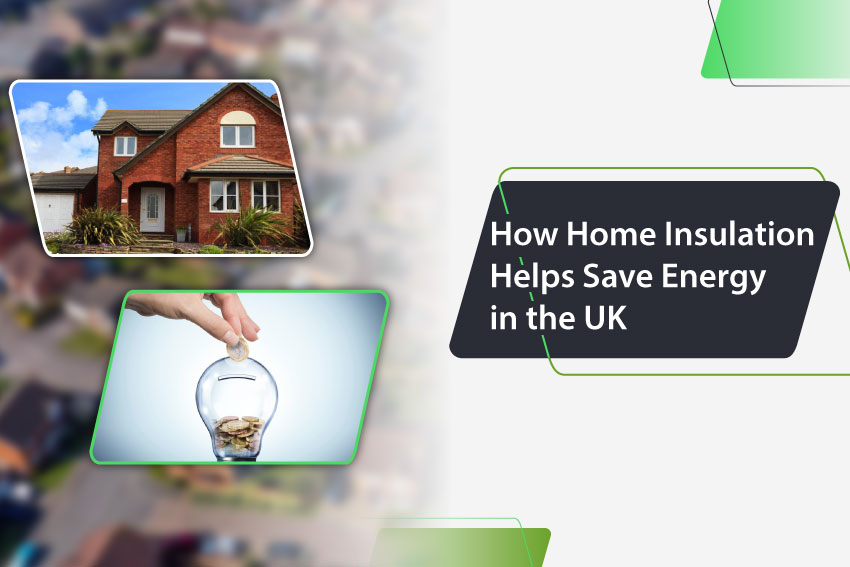Home insulations are increasingly becoming essential in order to create a more comfortable environment. Home insulation helps save energy in the UK and helps make your house more energy efficient.
The fact that home insulation has been proven to save energy is not news any longer. However, it is still important to understand how it works and why it is so effective. In order to understand this better, let us take a look at how home insulation works and why it is so effective in saving energy.
How Does A Home Insulation System Work?
Home insulation systems work by reducing heat loss from your house through air leaks, gaps around door frames and windows, cracks in walls etc. The best way to understand how this happens is by looking at an example: Imagine you are going on vacation for two weeks and want to leave your house empty while you are away. You would definitely not like your house to be cold while you are away but what if there was no insulation? The heat from the sun would leak out of the window frames and into the rest of your house causing it to be very cold inside during this period of time when nobody was using it.
When air gets trapped in the walls, ceilings and floors of buildings, it can become stale and unhealthy, even harmful, to breathe. This can be particularly problematic for people with allergies or asthma. Home insulation helps keep unwanted pollutants out of your home, which will improve its air quality and make it more comfortable for you and your family members.
If you’re looking for ways to save energy in your home, then installing insulation is a great place to start. Insulation is a very simple and cost-effective way of reducing your energy bills and carbon emissions, which makes it an essential part of any sustainable living strategy.
Insulation can help you save money on heating bills. The most important thing about installing insulation is that it will reduce your energy usage by keeping heat in the house during cold periods and out during hot periods. This means that you’ll spend less on heating fuel and will also reduce carbon emissions from the electricity used to power your heating system.
Insulation can also help with other aspects of home energy consumption such as cooling costs, as well as helping to keep indoor air quality stable over time. For example, insulated windows block out sunlight but allow air inside to stay cool in summer and warm in winter, meaning there is less need for air conditioning when necessary.
Insulation also helps improve air quality in your home. When air gets trapped in the walls, ceilings and floors of buildings, it can become stale and unhealthy – even harmful – to breathe. This can be particularly problematic for people with allergies or asthma. Home insulation helps keep unwanted pollutants out of your home, which will improve its air quality and make it more comfortable for you and your family members.
There are many ways that home insulation can help save energy in the UK. Here are a few of them:
Improves Energy Efficiency
Insulation improves the efficiency of your home by reducing heat loss through walls, ceilings and floors; reducing noise transmission; improving thermal performance (for example, by slowing down how quickly indoor temperatures rise); improving airtightness; enhancing indoor comfort; increasing security (by reducing sound transmission); improving safety (by reducing fire risk); reducing moisture ingress through walls; helping to maintain building structure; preventing mold growth, preventing condensation from forming on cold surfaces when temperatures drop below freezing point.
Reduces Your Carbon Footprint
The UK is under pressure from the government to cut its carbon emissions by 80% by 2050. Home insulation can help you achieve this goal by reducing your overall energy use and improving the efficiency of your HVAC equipment. Using less energy means less carbon dioxide is emitted into the atmosphere, which helps keep global warming to a minimum.
Insulation Keeps Your Home Warm In Winter And Cool In Summer
Insulation is a material that traps air so it can’t conduct heat or cold, and then releases it gradually. It does this by absorbing heat from the sun and then releasing it to you during the night.
A good thermal barrier prevents this heat loss through convection (heat rising). For example, if your home is insulated well, it will be warmer inside than out in winter.
Helps You Save On Heating Bills
High-quality insulation can reduce cooling costs by up to 20%, according to Energy Saving Trust research. In addition, it helps your home stay at a comfortable temperature, which means you spend less time making sure it’s nice and warm when you want it. This is especially important if you have young children at home or live in an area with cold winters.
Reduces Heat Loss
An attic is one of the warmest parts of your home, and it’s also where any extra heat you generate can escape into the atmosphere. Insulating your attic is a great way to reduce this heat loss, so you can save money on your heating bills.
Conclusion
Home insulation prevents warm air escaping through your home and forces it to stay inside. It also prevents cold air from entering into your home. Every year, people in the UK waste an extraordinary amount of energy, just by leaving their windows and doors open when it’s cold outside or open when it’s hot inside. If you want to save some money on your heating bill in the winter, make sure you renovate your property properly and install some new insulation today.


